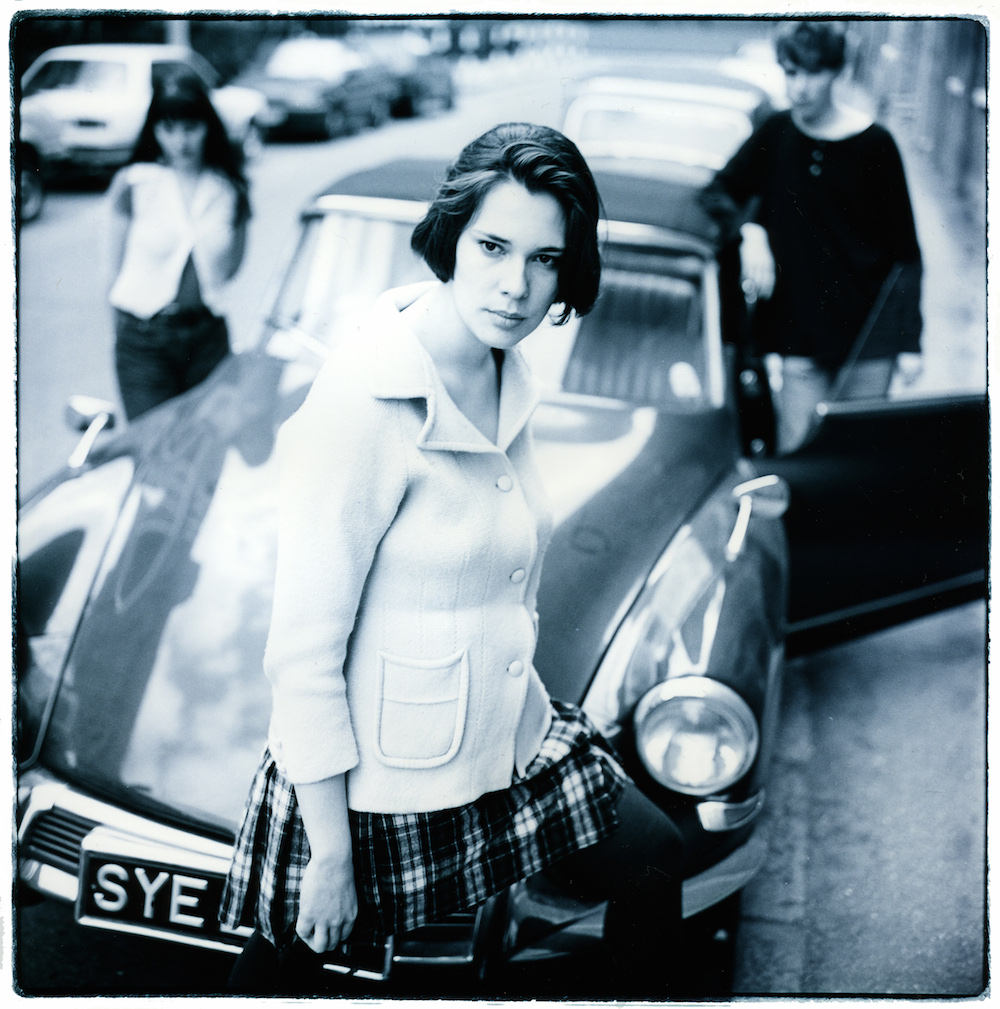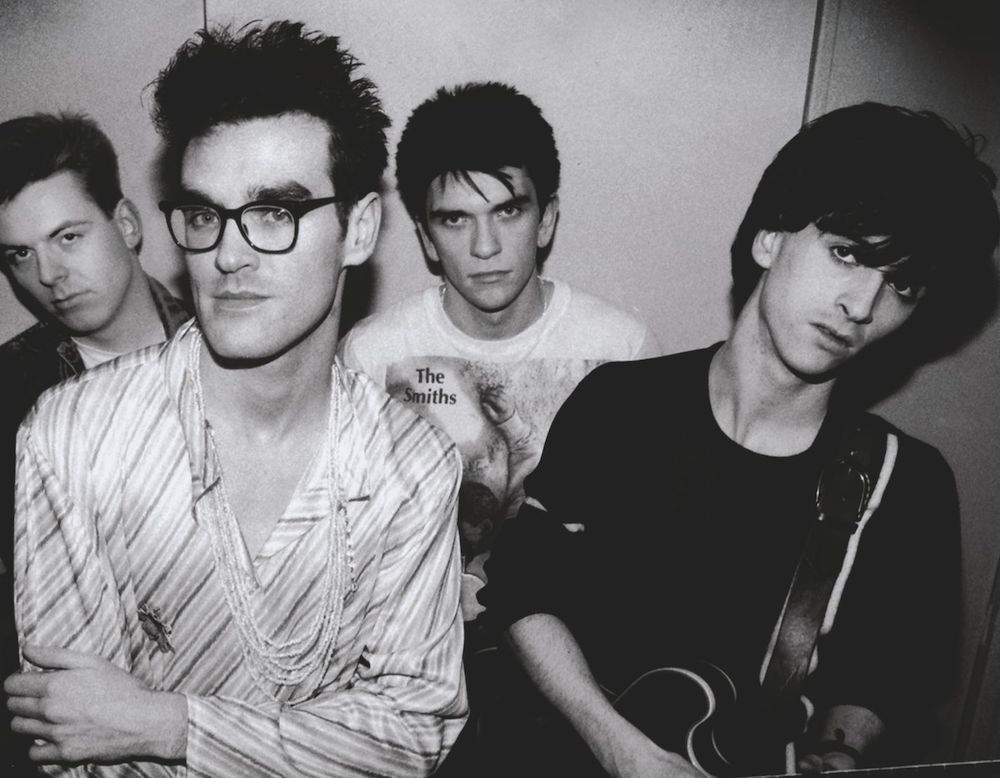While grunge was peaking, Britpop was winding down, and hip-hop was in the midst of being codified as pop's lingua franca, Stereolab were just getting warmed up in pursuit of a throwback art-deco futurism. From their formation in 1990 to the beginning of their "indefinite hiatus" in 2009, the London-based "Groop" -- centered around songwriters and (formerly) marrieds Tim Gane and Laetitia Sadier, with drummer Andy Ramsey and the late guitarist/singer Mary Hansen hanging in longer than many other members -- wove easy-listening schmaltz, bossa nova, jazz, Krautrock, punk, avant-garde, noise, post-rock, and more into forms that beguiled and baffled audiences in equal measure. For good or ill, no two releases sounded quite the same, but everything was recognizable as uniquely Stereolab -- a heady, hyper-real brew born of too many hours spent dicking around in studios by their lonesome or with varying degrees of input from members of Mouse On Mars, Tortoise, and High Llamas.
Boiling three decades of albums, compilations, EPs, splits, and singles down to a mere 10 songs was rough, and it's entirely possible that if I started writing this feature next month, I'd be tackling a different 10 songs. What struck me most in revisiting the Stereolab canon is how, despite stylistic shifts from one record to another, there seemed to be a self-curating instinct at work. Early 1990s Stereolab was largely noisy, raging, and monochromatic, with few or no individual songs calling much attention to themselves for non-diehard fans. In the mid-1990s, Mars Audiac Quintet and Emperor Tomato Ketchup would feature a Groop simultaneously flirting with poptimism and rockism -- the pipe dream of most bands, if they're honest with themselves -- in a scenario where every song killed even as each album succeeded as a group of songs.
Dots & Loops and Cobra Group And Phases Play Voltage In The Milky Night were strident album albums that struck distinct moods and lost some of their impact in places. Beyond that point, Stereolab seemed to lose ground; the stretch of LPs from Sound-Dust through Not-Music was relatively uninspiring, with fans getting only one or two gems from albums that weren't otherwise memorable. When Stereolab called it a day, I was more relieved than anything.
These days, Sadier has pursued music as Monade and under her own name, while Gane teams up with Holger Zapf and former Stereolab drummer Joe Dilworth as Cavern Of Anti-Matter. Whether a Groop reunion is in the cards remains to be seen, but even if that never happens, they've left behind an astonishing legacy.
10. "Op Hop Detonation" (from Cobra Group And Phases Play Voltage In The Milky Night, 1999)
Cobra Group And Phases Play Voltage In The Milky Night continued the pointedly rockist streak Stereolab kicked off with 1997's Dots & Loops -- i.e., studio albums much less invested in the notion of standalone "hits" than grooving on a particular vibe throughout, each track a crucial piece of a larger artistic puzzle. Given that the Groop's final masterpiece felt inspired by jazz, melancholia, psychedelia, and late 20th-century European cinema, the emergence of a straight-up banger seemed unlikely. Yet there "Op Hop Detonation" was, nonetheless: surging brass, wild-out effects, and head-spinning Sadier/Hansen mic-pass glamour, all of it floating in seltzer water. How exactly are you listening to this at home without dancing in your swivel chair?
[videoembed size="full_width" alignment="center"][/videoembed]
09. "Daisy Click Clack" (from Chemical Chords, 2008)
Arguably the last burst of pure, unadulterated joy in the Groop's canon, "Daisy Click Clack" splits the difference between up-jump, juke-joint jangle and the center-piece rollick from an unproduced Julie Andrews musical. The elaborateness of its construction belied by merriment and sheer melodic power, this spritely song is composed entirely of musical exclamation points: the drums scaring up a fine simulacrum of a horse on cobblestone, flanged guitars and synthesizers trading quips, shoots of piano poking through, Laetitia Sadier's felicitous vocal ballooning the hook to stratospheric heights. "Daisy" sticks out like a sore thumb on Chemical Chords in much the same way that the similarly country-ish "Captain Easychord" stands apart from Sound-Dust; even as both albums are examples of how uneven Stereolab's late output could be, gems did surface.
[videoembed size="full_width" alignment="center"][/videoembed]
08. "The Long Hair Of Death" (from a split single with Yo La Tengo, 1995, and Aluminum Tunes: Switched On 3, 1998)
Titled after a 1960s Italian horror film, "The Long Hair Of Death" may be the best of the Groop's out-music larks: five minutes of moody boulevard bass drones beset by squelched wavelength and spooky oooooooos doubling back upon themselves. It should be noted that the Switched On compilations, where stray splits, EPs, and singles were collected, are an embarrassment of riches in terms of oddities and left turns like "Death" -- which feels tailor-made for a Scooby-Doo episode where the gang mistakes brown acid for Scooby Snacks.
[videoembed size="full_width" alignment="center"][/videoembed]
07. "Refractions In The Plastic Pulse" (from Dots & Loops, 1997)
For many, Dots & Loops drew a clear line in the sand of Stereolab's discography, separating the band's rough-hewn beginnings from its creamier, increasingly produced later period. And it's a weird line, impossibly florid and at the same time digitally processed to an almost unnerving degree. At almost 18 minutes in length, "Refractions In The Plastic Pulse" sums and simmers its parent album's competing impulses in an epic apex. Glossy lounge-noir sway spliced with sonar blips gives way to scurrying, teletype Tortoise-esque "funk," which yields to dour, lethargic psychedelia, then erupts, bizarrely, into a Duophonic Discs interpretation of IDM that sighs into swoonsome bossa nova. There are certainly other viable ways to separate hardcore besties from fairweather friends, but "Pulse" is the only one I can think of that's reliably magical each time out -- plus, it's all in French.
[videoembed size="full_width" alignment="center"][/videoembed]
06. "...Sudden Stars" (from Margarine Eclipse, 2004)
In December 2002, Stereolab vocalist/guitarist Hansen was killed in London when a motorist struck her while she was riding her bicycle. While the tragedy left Gane and Sadier uncertain about whether Stereolab could or should continue, the Groop ultimately soldiered on, with Margerine Eclipse recorded as a tribute to Hansen. The unabashedly personal "...Sudden Stars" is both send-off and standout, a deft, percolating microcosm of the band's varied strengths more affecting than anything else in its considerable arsenal. I can't hear Sadier sing, "So if you must go, go/ The wind will take you, it will lift you/ Across the ocean," without being overtaken by chills.
[videoembed size="full_width" alignment="center"][/videoembed]
05. "Jenny Ondioline" (from Transient Random Sound Bursts With Announcements, 1993)
A tidal wave of flavored clamor, "Jenny Ondioline" is noise-pop par excellence: the freon voices of Sadier and Hansen swelling over and dipping beneath rippling guitars and siren-ing organs, motorik pulse married to shoegaze-y din. The bonus? It's actually two awesome-sauce ragers in one, shifting around the eight-minute mark into a choppier, slightly more conventionally thrilling gear that crashes forward for 10 more minutes of your life that you won't mind surrendering to these grooves.
[videoembed size="full_width" alignment="center"][/videoembed]
04. "Les Yper-Sound" (from Emperor Tomato Ketchup, 1996)
Here, the Groop goes in for a jittery jolt of electro-reggae -- or something near enough to that vein -- as the unbreakable fist of Sadier/Hansen gamely boil the truth of geo-political unrest down to piddling schoolyard bullshit. All zapping static, self-cannibalizing effects, and klonking bongos, "Les Yper-Sound" is so eminently re-playable that it's difficult not to blow off the rest of Emperor Tomato Ketchup to lose yourself in a Moebuis strip loop. Speaking of which, I still don't understand why Stereolab weren't the target of constant, face-melting remixes during their prime; one of the universe's crueler mysteries.
[videoembed size="full_width" alignment="center"][/videoembed]
03. "Transona Five" (from Mars Audiac Quintet, 1994)
Returning to Mars Audiac Quintet after a long absence for the purposes of this article nearly broke me, because -- despite being overshadowed in the canon by Emperor Tomato Ketchup -- it is the most consistently satisfying of all of Stereolab's records; taken piecemeal or in one sitting, the album's thick, massed throb is so all-consuming that choosing one or two or three favorites is comparable to being ordered, at gunpoint, to choose among one's children. The bouncy "Transona Five" nails this approach, a wonder of sweet'n'sour clang chords that drift around in the mix's viscous mucous membrane. The melodic steel here is such that the song's disinterest in escaping the bounds of mid-tempo is much more plus than minus, with Sadier's late-innings octave leap serving as the climax "Five" earns but almost doesn't need.
[videoembed size="full_width" alignment="center"][/videoembed]
02. "Cybele's Reverie" (from Emperor Tomato Ketchup, 1996)
I always think of "Cybele's Reverie" as fairytale Stereolab, one of the Groop's fanciful stabs at a pop Disney fable (see also Mars Audaic Quintet's woozy "International Colouring Contest"). Everything about this song is playfully calibrated for maximum wow: the vocal lines enveloping one another like mutant kudzu, the killer wasp tickle of effects pedals, the strings a-swooping just so. Even at the chorus, when "Reverie" pauses to catch its breath and pulls its propulsive punches, dazzlement remains the name of the game, with sweet sweeps of orchestration and synth tone piling up swiftly and adroitly, like Jenga blocks in the hands of a master.
[videoembed size="full_width" alignment="center"][/videoembed]
01. "John Cage Bubblegum" (from a 7-inch single, 1995, and Refried Ectoplasm: Switched On 2, 1995)
Guitars rule the roost on "John Cage Bubblegum," a grimy neon blur of tiny drums, feedback, mashed chords thrashing in place as the mix perpetually teeters on the verge of swallowing itself, organs priming the pump, and lead and backing vocals ping-ponging about within the tune's hermetically sealed pleasure chamber. This is garage punk as power-pop, unimpeachable nyah-nyah-nyah, a paean to unbridled id and flouted manes. (I can't hear "Bubblegum" without flashing on Gane's idiosyncratic, side-to-side "headbanging" in live situations.) Ultimately a vodka-and-Red Bull-doused-lemonade Slurpee of a single, "Bubblegum," like the cockroach or the Dude, abides; indeed, if Stereolab can truly be said to have a recorded essence, this is it.
[videoembed size="full_width" alignment="center"][/videoembed]






